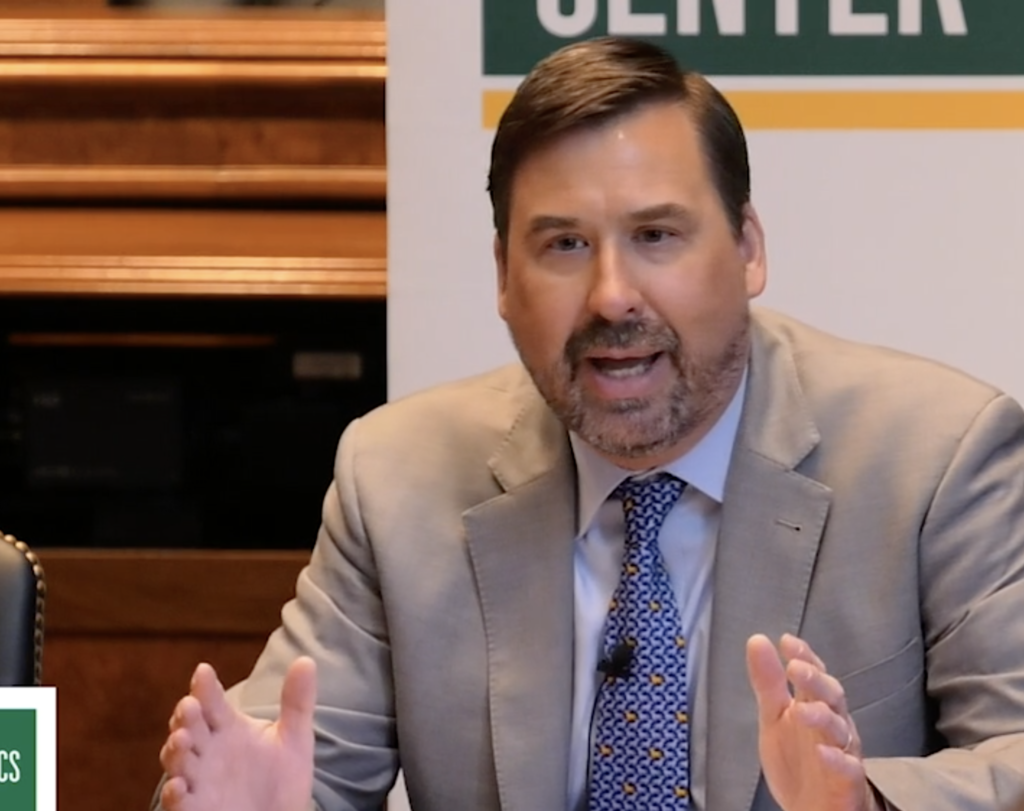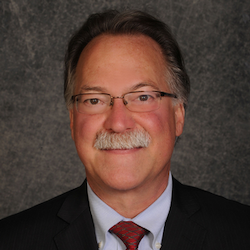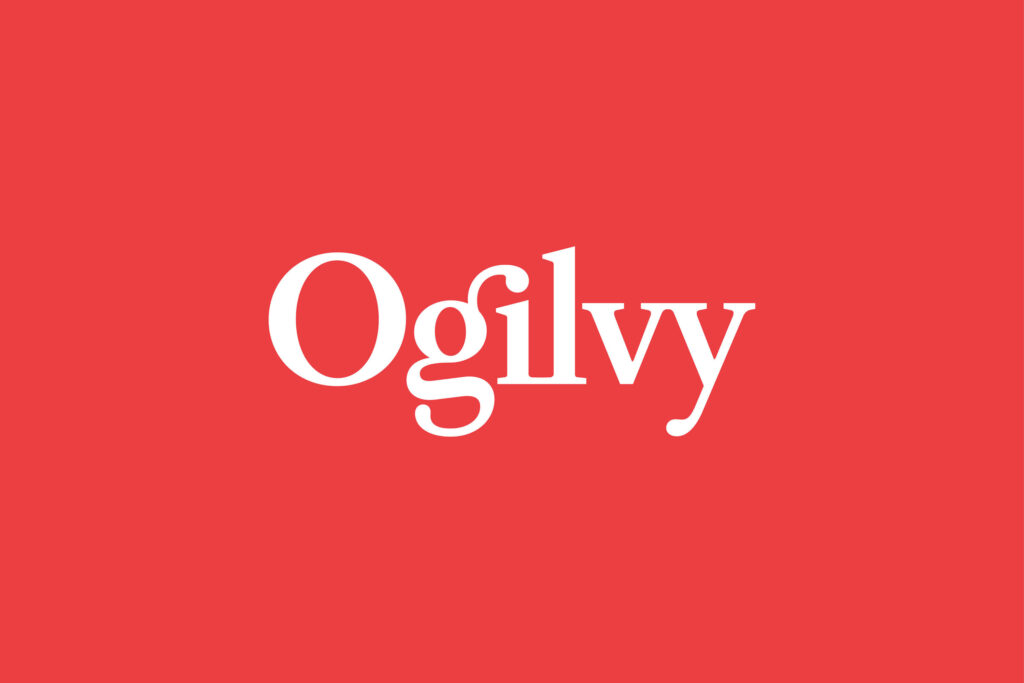Gregory Conko
Credentials
- J.D. Antonin Scalia Law School, George Mason University (2008)1“Gregory Conko,” LinkedIn. Archived .pdf on file at DeSmog.
- B.A. Political Science and History, American University (1992)2“Gregory Conko,” LinkedIn. Archived .pdf on file at DeSmog.
Image credit: MasonLEC / Vimeo
Background
Gregory Conko is a former senior fellow3“Gregory Conko Senior Fellow,” Competitive Enterprise Institute. Archived September 24, 2020. Archive.fo URL: https://archive.fo/PftXC at and former executive director of the Competitive Enterprise Institute (CEI).4“Gregory Conko,” LinkedIn. Archived .pdf on file at DeSmog.
Conko has been affiliated with CEI since 1994, according to his LinkedIn profile. He was a policy analyst and the director of food and drug policy at CEI from 1994 to 2003, a senior fellow from 2003 to 2016, and executive director from 2012 to 2016. His last senior fellowship ran from 2019 to 2021. Most recently he was listed as the vice president of programs at DonorsTrust.5“Gregory Conko,” LinkedIn. Archived .pdf on file at DeSmog.
According to his CEI profile, Conko’s research currently “focuses on health care, food and drug regulation, agriculture and agricultural trade. He also has broad expertise in science and environmental policy and in administrative and regulatory law.”6“Gregory Conko Senior Fellow,” Competitive Enterprise Institute. Archived September 24, 2020. Archive.fo URL: https://archive.fo/PftXC
The Competitive Enterprise Institute (CEI) is a non-profit public policy organization that describes itself as being “dedicated to advancing the principles of limited government, free enterprise, and individual liberty.”7“About,” Competitive Enterprise Institute. Archived September 24, 2020. Archive.fo URL: https://archive.fo/5V38I CEI has received significant funding from the fossil fuel industry, including over $1.7 million from ExxonMobil and more than $600,000 from Koch-related foundations.
According to his LinkedIn profile, from 2016 to 2019, Gregory Conko was the deputy director of the George Mason University Law and Economics Center.8“Gregory Conko,” LinkedIn. Archived .pdf on file at DeSmog. The Center’s nonprofit arm, the George Mason University Foundation, has received more than $46.5 million from the Koch Family Foundations.
Gregory Conko was a research associate with the Capital Research Center (CRC) from 1992 to 1993. 9“Gregory Conko,” LinkedIn. Archived .pdf on file at DeSmog. While at CRC, Conko co-authored a book titled “Patterns of Corporate Philanthropy: Executive Hypocrisy,” about “a worsening trend in corporate public affairs giving, which favor liberal over free-market public policy groups by a margin of over three-to-one.10”Capitol Research Center. “Alternatives in Philanthropy, July 1994,” Truth Tobacco Industry Documents Archive at the University of California, San Francisco Library. Archived September 24, 2020. Archive.fo URL: https://archive.fo/RayIh
Conko is a member of the American Council on Science and Health (ACSH)‘s Board of Scientific and Policy Advisors.11“Our Team,” American Council on Science and Health. Archived May 17, 2017. Archive URL: https://archive.fo/FFHHY Consumer advocate Ralph Nader once described ACSH as “a consumer front organization for its business backers. It has seized the language and style of the existing consumer organizations, but its real purpose, you might say, is to glove the hand that feeds it.”
In 2013, Mother Jones released leaked documents showing that “ACSH depends heavily on funding from corporations that have a financial stake in the scientific debates it aims to shape,” including major corporations and the tobacco industry.12Andy Kroll, Jeremy Schulman. “Leaked Documents Reveal the Secret Finances of a Pro-Industry Science Group,” Mother Jones, October 28, 2013. Archived September 24, 2020. Archive.fo URL: https://archive.fo/TPzph
Conko and Tobacco
According to his SourceWatch profile, in August 1998 Gregory Conko wrote a letter to the editor of The Washington Post, complaining that government regulations were preventing the tobacco industry from advertising what he termed “safer” cigarettes:13“Gregory Conko,” SourceWatch. Archived September 24, 2020. Archive.fo URL: https://archive.fo/QKLLx
“… the free market may well have produced better information and safer cigarettes, but the market was not free. It was, and continues to be, a captive of government regulators and political activists who believe that consumers are unable to evaluate advertisement claims with a health dose of skepticism. We should remember that the next time someone suggest a ban on truthful information in advertising.”
Stance on Climate Change
May 31, 2019
During a Congressional Civil Justice Academy briefing about climate lawsuits against fossil fuel companies, Gregory Conko said:14“Climate Change in the Courts: A Perfect Storm of Litigation,” Vimeo video uploaded by MasonLEC on May 31, 2019. Archived .mp4 on file at DeSmog.
“There remains a very acrimonious debate over the extent and nature of potential harms from climate change and over what, if anything, our government should do about it.”
Stance on Biotechnology in Agriculture
Gregory Conko has long advocated for the use of genetically-modified organisms (GMO) in agriculture. In 2000, Conko co-founded a group named AgBioWorld Foundation, which “aims to provide science-based information on agricultural biotechnology issues to various stakeholders across the world.”15“About AgBioWorld,” AgBioWorld. Archived September 24, 2020. Archive.fo URL: https://archive.fo/9tuzG
According to his AgBioWorld Foundation biography, Gregory Conko “frequently participates in international meetings on food safety and trade as a credentialed Non-Governmental Organization representative.”16“Greg Conko Biography,” AgBioWorld. Archived September 24, 2020. Archive.fo URL: https://archive.fo/L3XZl
Powerbase, an online encyclopedia created by Public Interest Investigations, has described Gregory Conko and AgBioWorld’s other co-founder, Dr. Channapatna S. Prakash, as “two of the most vociferous proponents of biotech in the US.”17“Competitive Enterprise Institute,” Powerbase. Archived September 24, 2020. Archive.fo URL: https://archive.fo/pfTxI
Conko was a principal investigator for a 2002 report on biotechnology for the California Council on Science and Technology, and in 2006 was added to a “Who’s Who in Biotechnology” short list by the journal Nature Biotechnology..18“Gregory Conko,” Crunchbase. Archived September 24, 2020. Archive.fo URL: https://archive.fo/ATpV4
Collaboration with Henry I. Miller
Gregory Conko has worked extensively with Henry I. Miller on many agricultural biotech-related publications. The two have co-authored op-eds and policy analyses for conservative publications, and co-authored scientific papers.19“Gregory Conko,” Research Gate. Archived September 24, 2020. Archive.fo URL: https://archive.fo/wfNyd
Henry I. Miller, M.D., is a senior fellow at the Pacific Research Institute of The Federalist Society.20“Henry I. Miller,” The Federalist Society.” Archived June 29, 2023. Archive URL: https://archive.ph/wip/TddEe Miller was a longtime Robert Wesson Fellow in Scientific Philosophy and Public Policy at the Hoover Institution, where “his research focused on public policy toward science and technology, encompassing a number of areas, including pharmaceutical development, genetic engineering in agriculture, models for regulatory reform, and the emergence of new viral diseases.”21“Henry I. Miller,” Hoover Institution. Archived June 29, 2023. Archive URL: https://archive.ph/wip/i0Nkj
During the Clinton, Reagan, and first Bush administrations, Miller held various positions at the U.S. Food and Drug Administration (FDA), such as founding director of the FDA Office of Biotechnology (1989-1994), and Special Assistant to the FDA Commissioner (1984-1989). According to his profile at SourceWatch, “Miller serves on the scientific advisory board of the George C. Marshall Institute, an oil-industry funded organization that Newsweek has called ‘a central cog in the denial machine.'”22“Henry I. Miller,” SourceWatch. Archived September 24, 2020. Archive.fo URL: https://archive.fo/XFIUB,
According to the watchdog group U.S. Right to Know, Henry I. Miller has a “long history of arguing against public health protections and taking positions outside of the scientific mainstream.”23Gary Ruskin. “Henry Miller dropped by Forbes for Monsanto ghostwriting scandal,” U.S. Right to Know, August 30, 2017. Archived September 24, 2020. Archive.fo URL: https://archive.fo/IahxP
Key Quotes
May 31, 2019
During a Congressional Civil Justice Academy briefing about climate lawsuits against fossil fuel companies, Gregory Conko said:24“Climate Change in the Courts: A Perfect Storm of Litigation,” Vimeo video uploaded by MasonLEC on May 31, 2019. Archived .mp4 on file at DeSmog.
“There remains a very acrimonious debate over the extent and nature of potential harms from climate change and over what, if anything, our government should do about it.”
February 1, 2011
Writing for the public policy think tank Hoover Institution, Gregory Conko and Henry I. Miller wrote of environmentalists:25Gregory Conko, Henry I. Miller. “The Rush to Condemn Genetically Modified Crops,” Hoover Institution, February 1, 2011. Archived September 24, 2020. Archive.fo URL: https://archive.fo/RsWeM
“When they [environmentalists] can’t sway public opinion with outright misrepresentations or induce regulators to reject products, activists have resorted to vandalism of field trials and, finally, to harassment with nuisance lawsuits.”26Gregory Conko, Henry I. Miller. “The Rush to Condemn Genetically Modified Crops,” Hoover Institution, February 1, 2011. Archived September 24, 2020. Archive.fo URL: https://archive.fo/RsWeM
February 6, 2005
On anti-GM NGO’s, Gregory Conko and Henry I. Miller wrote:27Henry I. Miller, Gregory Conko. “NGO war on biotechnology,” Journal of Commercial Biotechnology/Springer, February 6, 2005. Archived .pdf on file at DeSmog.
“Some of these groups pose as open-minded sceptics, rather than antagonists, but beneath the rhetoric, their arguments and actions lead us to much the same place: attempts to create a groundswell of anxiety toward biotechnology, and to elicit unnecessary, hugely burdensome government regulation that will make product testing and commercialisation increasingly untenable.”
Key Deeds
August 28, 2014
Gregory Conko appeared in episode 1, titled “Why Haven’t We All Starved to Death,” of a Pacific Research Institute (PRI) four-part web series called Hysteria’s History. The series was aimed at “exposing young people to the historical progression of environmental alarmism that has often resulted in poor and contradictory policy proposals.”28“Hysteria’s History Episode 1,” YouTube video uploaded by user Pacific Research Institute – PRI, August 28, 2014. Archived .mp4 on file at DeSmog. 29“Hysteria’s History Part 1,” Pacific Research Institute, September 10, 2014. Archived September 24, 2020. Archive.fo URL: https://archive.fo/ezocU
In the clip, Conko referred to late American agronomist Norman Borlaug, widely considered the father of the Green Revolution30Christopher Dowswell. “Norman Ernest Borlaug (1914-2009),” Science, October 16, 2009 , as the man who “showed developing countries how to use modern agricultural techniques to increase crop yields.” 31“Hysteria’s History Episode 1,” YouTube video uploaded by user Pacific Research Institute – PRI on August 28, 2014. Archived .mp4 on file at DeSmog. Critics have argued that “the long-term profits of [Borlaug’s] work have been reaped mainly by large companies at the expense of small farmers.”32John Vidal. “Normal Borlaug: humanitarian hero or menace to society?” Guardian, April 1, 2014. Archived September 24, 2020. Archive.fo URL: https://archive.fo/jEdsK
2013
The American Council on Science and Health (ACSH) published a report co-authored by Martina Newell-McGloughlin, Bruce Chassy, and Gregory Conko, titled “Food And You: A Guide To Modern Agricultural Biotechnology.” ACSH described the book as follows:33“Food And You: A Guide To Modern Agricultural Biotechnology,” Scribd. Archived June 29, 2023. Archive URL: https://archive.fo/wip/1dZsv
“New and innovative techniques will be required to improve the production and efficiency of the global agriculture sector to ensure an ample supply of healthy food. This challenge is confounded by the inequity between the affluent and developing countries that is likely to widen. It appears that only a handful of technologies are affordable by the least developed countries and are sufficiently scale neutral to be accessible to poorer countries. In this book the American Council on Science and Health explores the benefits of, and barriers to, biotechnology – one such technology that offers efficient and cost-effective means to produce a diverse array of novel, value-added traits and products.”
July 11, 2011
In an article for the Cato Institute quarterly Regulation, “The USDA’s Anti-Science Activism,” Henry I. Miller and Gregory Conko accused Obama administration Agriculture Secretary Tom Vilsak of ignoring scientific evidence and pandering to the organic food lobby when he announced that the agency “might forbid farmers to plant” a genetically-modified variety of alfalfa in some areas, because it risked cross-pollenating organic crops.34Henry I. Miller and Gregory Conko. “The USDA’s Anti-Science Activism,” Regulation, Summer 2011. Archived June 29, 2023. Archive URL: https://archive.fo/wip/wNRLX
February 1, 2011
In an article for the Hoover Institution, Gregory Conko and Henry I. Miller criticized resistance to federal approval for the glyphosate-based pesticide Roundup, which has since been linked to cancer. along with crops genetically modified to be resistant to glyphosate. Conko and Miller wrote:35Gregory Conko, Henry I. Miller. “The Rush to Condemn Genetically Modified Crops,” Hoover Institution, February 1, 2011. Archived September 24, 2020. Archive.fo URL: https://archive.fo/RsWeM
“But anti-biotechnology activists never permit facts or the judgments of experts to get in the way of their antagonism, so a coalition of environmental groups organized by the radical Center for Food Safety joined with a handful of organic farmers to sue in federal court to halt the planting of alfalfa, sugar beets, and turf grass modified for resistance to the herbicide glyphosate (better known by its trade name, Roundup). The plaintiffs were unable to make any substantive arguments that these crops were unsafe but instead claimed that Aphis’s environmental assessment was legally — that is, procedurally — insufficient. They argued that a comprehensive environmental impact statement should have been prepared instead.
“What were the supposedly significant environmental impacts that Aphis allegedly failed to account for in its environmental analysis? The plaintiffs made two claims: First, that the widespread adoption of gene-spliced, herbicide-resistant crops could accelerate the development of herbicide-resistant weeds and force farmers to switch to other, less safe herbicides. Second, they claimed that cross-pollination by gene-spliced crops could jeopardize the certification for nearby organic crops (because organic farming prohibits the use of gene-spliced plants).
“These are hardly the kinds of ecological impacts that Congress had in mind when it enacted [the National Environmental Policy Act] but the scope of that law has been expanded beyond all recognition by judges who interpret the term ‘human environment’ to include effects that are largely economic or social.”
Summer 2003
The Cato Institute’s quarterly publication Regulation, published an article by Henry I. Miller and Gregory Conko, “Bootleggers and Biotechs” in its Summer 2003 issue. Article summary:36“Bootleggers and Biotechs,” WorldCat. Retrieved June 29, 2023
“Opponents of biotechnology often complain that the large biotech firms have vigorously fought efforts to regulate the industry. In fact, the large firms – Monsanto (now Pfizer), Ciba-Geigy (now Syngenta), DuPont, Pioneer, Dow, Bayer, BASF, et al. – have been anything but consistent opponents of regulation. They have encouraged government intervention in the market both to provide a government seal of approval on their products and – more ominously – to diminish competition with highly innovative small – and mid-sized companies and academic researchers”
Spring 2003
The Cato Institute’s quarterly publication Regulation published an article by Gregory Conko titled “The Benefits of Biotech” in its Spring 2003 issue. Article summary: 37“The Benefits of Biotech,” WorldCat. Retrieved June 29, 2023
“As the world’s population grows, environmental stewardship will require science to find ways to produce more food on less land. The rapidly expanding use of bio-engineered corn, cotton, and soybean varieties has increased yields, reduced the use of agricultural chemicals, and saved growers time, resources, and money. The increased productivity allows farmers to grow substantially more food and fiber on less land. However, numerous attempts have been made in recent years to increase the regulatory burden borne by the products of biotechnology – through both agency rulemaking and congressional legislation. All of those attempts have two things in common: They require regulators to consider only the risks of bio-engineered crops and not their benefits, and they hold gene-splicing to a standard of safety that could not possibly be met by non-biotech products and practices. Heightened regulation of certain high-risk plant varieties may indeed be warranted. But when biotechnology is evaluated on a level playing field, farmers, consumers, and regulators will find that it outshines its competitors.”
September 16, 2002
In a since-deleted article for Spiked, Gregory Conko and Channapatna Prakash argued that genetically modified crops would be beneficial for UK farming:38Gregory Conko, Channapatna S. Prakash. “The future of GM,” Spiked, September 16, 2002. Archived May 23, 2007. Archive.fo URL: https://archive.fo/V4rBG
“…fears about the GM farm-scale evaluations are wholly misplaced. Moreover, if the field trials are given an opportunity to progress unmolested, Britons will find that they show GM crops to have very real environmental benefits, not just hypothetical risks.”
They concluded that GM could offer “tremendous benefits for the environment, for farmers, and for consumers – but only if we give it a chance to prove itself.”39Gregory Conko, Channapatna S. Prakash. “The future of GM,” Spiked, September 16, 2002. Archived May 23, 2007. Archive.fo URL: https://archive.fo/V4rBG
Affiliations
- DonorsTrust — Vice president of programs (since July 2021).40“Gregory Conko,” LinkedIn. Archived .pdf on file at DeSmog.
- Competitive Enterprise Institute — Senior fellow (2003-2016, 2019-2021), former executive director (2012-2016), former director of food and drug policy {1994-2003)41“Gregory Conko Senior Fellow,” Competitive Enterprise Institute. Archived September 24, 2020. Archive.fo URL: https://archive.fo/PftXC
- George Mason University Law and Economics Center — Deputy director (2016-2019)42“Gregory Conko Senior Fellow,” Competitive Enterprise Institute. Archived September 24, 2020. Archive.fo URL: https://archive.fo/PftXC
- AgBioWorld Foundation – Co-founder, 200043“Gregory Conko Senior Fellow,” Competitive Enterprise Institute. Archived September 24, 2020. Archive.fo URL: https://archive.fo/PftXC
- Mercatus Center at George Mason University — Senior affiliated scholar44“Gregory Conko Senior Fellow,” Competitive Enterprise Institute. Archived September 24, 2020. Archive.fo URL: https://archive.fo/PftXC
- Federalist Society — Member, Regulatory Transparency Project Working Groups on Regulatory Process and FDA & Health45“Gregory Conko Senior Fellow,” Competitive Enterprise Institute. Archived September 24, 2020. Archive.fo URL: https://archive.fo/PftXC
- American Council on Science and Health (ACSH) — Member, Board of Scientific and Policy Advisors46“Gregory Conko Senior Fellow,” Competitive Enterprise Institute. Archived September 24, 2020. Archive.fo URL: https://archive.fo/PftXC
- Capital Research Center (CRC) — Research associate (1992-1993)47“Gregory Conko Senior Fellow,” Competitive Enterprise Institute. Archived September 24, 2020. Archive.fo URL: https://archive.fo/PftXC
Social Media
- Gregory Conko on LinkedIn
- @AgBioWorld on Twitter: Name on account is “Channa Prakash”
Publications
- “The U.N. celebrates a regulatory debacle,” GM Crops & Food, December 10, 2018.
- “A risk-based approach to the regulation of genetically engineered organisms,” Nature Biotechnology, May 6, 2016. Note: Appears in some online listings as “A risk-based approach to the regulation of genetically-engineered plants.”
- “Hidden Truth: The Perils and Protection of Off-Label Drug and Medical Device Promotion,” 21 Health Matrix 149, 2011. 48Gregory Conko. “Hidden Truth: The Perils and Protection of Off-Label Drug and Medical Device Promotion,” 21 Health Matrix 149, 2022. PDF on file at DeSmog.
- “Why spurning food biotech has become a liability,” Nature Biotechnology, September 1, 2006.
- “NGO war on biotechnology,” Journal of Commercial Biotechnology, April 1, 2005
- Gregory Conko, Henry I. Miller. (2004) “The Frankenfood Myth: How Protest and Politics Threaten the Biotech Revolution,” Praeger Publishers.
- “Safety, Risk and the Precautionary Principle: Rethinking Precautionary Approaches to the Regulation of Transgenic Plants,” Transgenic Research, December 2003.
Other Publications
With Henry I. Miller:
- “The First Amendment Applies to the FDA Too,” Reason, March 6, 2018.
- “General Mills Has a Soggy Idea for Cheerios,” Hoover Daily Report, January 21, 2014.
- “The Ripple Effects of Flawed Agbiotech Regulation,” Regulation, Winter 2012-2013.
- “Free Speech for Big Pharma,” Defining Ideas, November 14, 2012.
- “A Spoonful of Sugar Will Soon Cost More,” Hoover Daily Report, December 31, 2010.
- “Scary Food: Fear of biotech may get you sick,” Hoover Institution, June 1, 2006.
- “The U.N., Biotechnology, and the Poorest of the Poor,” Hoover Digest, April 30, 2005.
- “Technology’s Unworthy Adversaries,” Hoover Digest, April 30, 2004.
- “Biotech and Baby Food,” Hoover Institution, June 1, 2003.
- “A Deadly Food Fight: Real-life casualties in the biotech wars,” Hoover Digest, 2003.
- “The Perils of Precaution: Why Regulators’ ‘Precautionary Principle’ Is Doing More Harm Than Good,” Hoover Institution, June 1, 2001.
Other Resources
Resources
- 1“Gregory Conko,” LinkedIn. Archived .pdf on file at DeSmog.
- 2“Gregory Conko,” LinkedIn. Archived .pdf on file at DeSmog.
- 3“Gregory Conko Senior Fellow,” Competitive Enterprise Institute. Archived September 24, 2020. Archive.fo URL: https://archive.fo/PftXC
- 4“Gregory Conko,” LinkedIn. Archived .pdf on file at DeSmog.
- 5“Gregory Conko,” LinkedIn. Archived .pdf on file at DeSmog.
- 6“Gregory Conko Senior Fellow,” Competitive Enterprise Institute. Archived September 24, 2020. Archive.fo URL: https://archive.fo/PftXC
- 7“About,” Competitive Enterprise Institute. Archived September 24, 2020. Archive.fo URL: https://archive.fo/5V38I
- 8“Gregory Conko,” LinkedIn. Archived .pdf on file at DeSmog.
- 9“Gregory Conko,” LinkedIn. Archived .pdf on file at DeSmog.
- 10”Capitol Research Center. “Alternatives in Philanthropy, July 1994,” Truth Tobacco Industry Documents Archive at the University of California, San Francisco Library. Archived September 24, 2020. Archive.fo URL: https://archive.fo/RayIh
- 11“Our Team,” American Council on Science and Health. Archived May 17, 2017. Archive URL: https://archive.fo/FFHHY
- 12Andy Kroll, Jeremy Schulman. “Leaked Documents Reveal the Secret Finances of a Pro-Industry Science Group,” Mother Jones, October 28, 2013. Archived September 24, 2020. Archive.fo URL: https://archive.fo/TPzph
- 13
- 14“Climate Change in the Courts: A Perfect Storm of Litigation,” Vimeo video uploaded by MasonLEC on May 31, 2019. Archived .mp4 on file at DeSmog.
- 15“About AgBioWorld,” AgBioWorld. Archived September 24, 2020. Archive.fo URL: https://archive.fo/9tuzG
- 16“Greg Conko Biography,” AgBioWorld. Archived September 24, 2020. Archive.fo URL: https://archive.fo/L3XZl
- 17“Competitive Enterprise Institute,” Powerbase. Archived September 24, 2020. Archive.fo URL: https://archive.fo/pfTxI
- 18
- 19“Gregory Conko,” Research Gate. Archived September 24, 2020. Archive.fo URL: https://archive.fo/wfNyd
- 20“Henry I. Miller,” The Federalist Society.” Archived June 29, 2023. Archive URL: https://archive.ph/wip/TddEe
- 21“Henry I. Miller,” Hoover Institution. Archived June 29, 2023. Archive URL: https://archive.ph/wip/i0Nkj
- 22“Henry I. Miller,” SourceWatch. Archived September 24, 2020. Archive.fo URL: https://archive.fo/XFIUB
- 23Gary Ruskin. “Henry Miller dropped by Forbes for Monsanto ghostwriting scandal,” U.S. Right to Know, August 30, 2017. Archived September 24, 2020. Archive.fo URL: https://archive.fo/IahxP
- 24“Climate Change in the Courts: A Perfect Storm of Litigation,” Vimeo video uploaded by MasonLEC on May 31, 2019. Archived .mp4 on file at DeSmog.
- 25Gregory Conko, Henry I. Miller. “The Rush to Condemn Genetically Modified Crops,” Hoover Institution, February 1, 2011. Archived September 24, 2020. Archive.fo URL: https://archive.fo/RsWeM
- 26Gregory Conko, Henry I. Miller. “The Rush to Condemn Genetically Modified Crops,” Hoover Institution, February 1, 2011. Archived September 24, 2020. Archive.fo URL: https://archive.fo/RsWeM
- 27Henry I. Miller, Gregory Conko. “NGO war on biotechnology,” Journal of Commercial Biotechnology/Springer, February 6, 2005. Archived .pdf on file at DeSmog.
- 28“Hysteria’s History Episode 1,” YouTube video uploaded by user Pacific Research Institute – PRI, August 28, 2014. Archived .mp4 on file at DeSmog.
- 29“Hysteria’s History Part 1,” Pacific Research Institute, September 10, 2014. Archived September 24, 2020. Archive.fo URL: https://archive.fo/ezocU
- 30Christopher Dowswell. “Norman Ernest Borlaug (1914-2009),” Science, October 16, 2009
- 31“Hysteria’s History Episode 1,” YouTube video uploaded by user Pacific Research Institute – PRI on August 28, 2014. Archived .mp4 on file at DeSmog.
- 32John Vidal. “Normal Borlaug: humanitarian hero or menace to society?” Guardian, April 1, 2014. Archived September 24, 2020. Archive.fo URL: https://archive.fo/jEdsK
- 33“Food And You: A Guide To Modern Agricultural Biotechnology,” Scribd. Archived June 29, 2023. Archive URL: https://archive.fo/wip/1dZsv
- 34Henry I. Miller and Gregory Conko. “The USDA’s Anti-Science Activism,” Regulation, Summer 2011. Archived June 29, 2023. Archive URL: https://archive.fo/wip/wNRLX
- 35Gregory Conko, Henry I. Miller. “The Rush to Condemn Genetically Modified Crops,” Hoover Institution, February 1, 2011. Archived September 24, 2020. Archive.fo URL: https://archive.fo/RsWeM
- 36“Bootleggers and Biotechs,” WorldCat. Retrieved June 29, 2023
- 37“The Benefits of Biotech,” WorldCat. Retrieved June 29, 2023
- 38Gregory Conko, Channapatna S. Prakash. “The future of GM,” Spiked, September 16, 2002. Archived May 23, 2007. Archive.fo URL: https://archive.fo/V4rBG
- 39Gregory Conko, Channapatna S. Prakash. “The future of GM,” Spiked, September 16, 2002. Archived May 23, 2007. Archive.fo URL: https://archive.fo/V4rBG
- 40“Gregory Conko,” LinkedIn. Archived .pdf on file at DeSmog.
- 41“Gregory Conko Senior Fellow,” Competitive Enterprise Institute. Archived September 24, 2020. Archive.fo URL: https://archive.fo/PftXC
- 42“Gregory Conko Senior Fellow,” Competitive Enterprise Institute. Archived September 24, 2020. Archive.fo URL: https://archive.fo/PftXC
- 43“Gregory Conko Senior Fellow,” Competitive Enterprise Institute. Archived September 24, 2020. Archive.fo URL: https://archive.fo/PftXC
- 44“Gregory Conko Senior Fellow,” Competitive Enterprise Institute. Archived September 24, 2020. Archive.fo URL: https://archive.fo/PftXC
- 45“Gregory Conko Senior Fellow,” Competitive Enterprise Institute. Archived September 24, 2020. Archive.fo URL: https://archive.fo/PftXC
- 46“Gregory Conko Senior Fellow,” Competitive Enterprise Institute. Archived September 24, 2020. Archive.fo URL: https://archive.fo/PftXC
- 47“Gregory Conko Senior Fellow,” Competitive Enterprise Institute. Archived September 24, 2020. Archive.fo URL: https://archive.fo/PftXC
- 48Gregory Conko. “Hidden Truth: The Perils and Protection of Off-Label Drug and Medical Device Promotion,” 21 Health Matrix 149, 2022. PDF on file at DeSmog.






